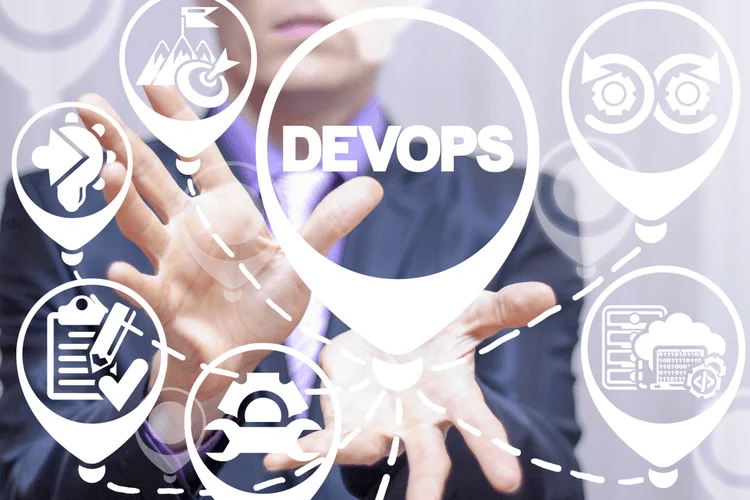
Challenges And Potentialities Of Generative Ai Generative Artificial Intelligence Libguides At University Of California San Diego
However, without a sturdy data-first culture on the core, it can be impossible to drive innovation and worth. AI delivers the insights that assist create worth, nevertheless it can’t do it if the information architecture isn’t aligned to the business from the onset. Essentially, it doesn’t matter how good the information technology is, if the enterprise doesn’t recognize how to use the asset. Data turns to value when the enterprise can draw upon AI-fueled insights and take motion within the second. This is achieved by merging know-how, ethics, law, and sociology specialists to develop all-encompassing solutions. Implementation methods for AI include systematic approaches to deliver AI applied sciences into the existing systems and workflows to make use of them successfully.
Algorithms, automation and machine learning (ML) can potentially help organizations reduce operational costs, improve effectivity and improve their product quality. However, integrating AI with different methods and discovering staff with the required AI experience could be tough. With the best approach and administration, AI can enhance creativity, provide deeper buyer insights, and streamline product growth processes – all while keeping that essential human touch. Businesses should consider these issues rigorously when growing and implementing AI options to keep away from potential dangers.
However, many businesses are nonetheless utilizing outdated equipment that is on no account able to taking over the problem of AI implementation. Data privateness and security are also major considerations for AI methods that have entry to sensitive customer information or proprietary company information. Companies must https://www.globalcloudteam.com/ ensure that AI methods are safe, compliant with laws, and don’t compromise customers’ privateness or mental property. This leads to value savings, improved productivity, and the ability to allocate human assets to extra strategic and artistic tasks.
In addition, necessary insights could be missed because of lack of full or standardized information, and this can produce inaccurate analysis and reports. Data is continually in motion—moving shortly from individual to individual and from individual to machines and again. As many AI-fueled organizations can attest, the magic happens when knowledge is transformed into value, even revenue, enhancing workforce and customer experiences alike. AI methods can be weak to malicious attacks, where slight modifications to enter knowledge can lead to incorrect results.
Company
Part of this entails building superior data capabilities, however it’s also elevating a base level of information literacy across completely different ranges of the group. The magic of innovation can occur when individuals start reimaging their own day-to-day work and realizing the advantages that high quality knowledge can bring. As previously mentioned, AI improvement is a global endeavor, and worldwide collaboration is important to handle ethical, regulatory, and safety challenges effectively.

The primary points surrounding AI are information safety and privateness since AI methods require massive amounts of data for operation and coaching. To keep away from leaks, breaches, and misuse, one should ensure data safety, availability, and integrity. To adjust to information safety guidelines such as the CCPA and GDPR, an organization will have to have access restrictions, encryption, and auditing capabilities.
Challenges Of Utilizing Ai To Develop New Merchandise
While AI guarantees to make product improvement quicker and more environment friendly, it also introduces new challenges that firms must think about critically. By educating groups on the method to leverage AI responsibly and establishing correct governance, these challenges can be addressed. Lastly, think about offering training applications for employees involved in AI improvement and deployment to lift awareness of moral points and finest practices.
- A holistic method to addressing power consumption challenges in AI requires innovation, industry-wide dedication, and eco-friendly practices to attenuate its environmental footprint.
- Artificial intelligence has the potential to rework the greatest way companies function, from automating tedious duties to improving decision-making processes.
- The companies that use superior applied sciences and even AI to compress time frames and address volume challenges could make the job lots easier.
- Trust-building among users via transparent information processes and ethical information dealing with protocols is essential for consumer confidence in AI systems and accountable knowledge management.
- For this reason, AI explainability is essential for a successful transition into machine studying.
Despite the formidable nature of the challenges posed by artificial intelligence, companies can efficiently navigate these obstacles by embracing a set of well-defined methods and practices. There are a number of actions that would trigger this block including submitting a certain word or phrase, a SQL command or malformed knowledge. Global tech giants affirm the steadiness of the course and increasing demand for AI merchandise. Recently, Alibaba announced that it’s testing its solution that would turn into a rival to ChatGPT. Chatbots and voice assistants are already used in buyer work, particularly in repetitive and routine duties.
AI systems might produce unreliable outcomes because of numerous factors, including biased or incomplete datasets, algorithmic limitations, or the complexity of the task at hand. To address these challenges in artificial intelligence, companies ought to emphasize rigorous testing and validation processes in the course of the growth of AI systems. Continuous monitoring and refinement are essential to enhancing reliability and making certain that AI options deliver constant and correct results. While there are challenges in synthetic intelligence, firms can overcome them by adopting a strategic and proactive approach. Companies ought to proactively handle algorithmic bias by implementing bias detection mechanisms, conducting common audits, and selling variety in information collection and model improvement.
Legacy methods are common in manufacturing firms for so much of causes, together with unclear ROI for upgrades and the overhead of implementing newer tech, but AI may not be capable of integrate with older systems. Implementing AI and ML requires specific information, and manufacturing firms will need to spend money on knowledge scientists, analysts and other algorithm and automation experts. However, the fast development of AI throughout industries means it can be troublesome to find individuals with the best experience to fill these roles. Artificial intelligence (AI) created a great deal of alternatives for market researchers engaged on new product growth.
Problem: It’s Essential To Maintain Up A Balance Between Ai And Human Service
As of now, neither companies nor their know-how partners have a tried-and-true formulation for developing and deploying AI techniques company extensive. Operational effectivity Automating information tasks can save time for busy knowledge engineers and business analysts. Because all departments need access to information, creating a repeatable framework to connect knowledge sources provides a value benefit to these using modernization strategies. The firms that use advanced technologies and even AI to compress time frames and tackle volume challenges can make the job lots easier. To help hit that North Star, companies should spend 20% to 30% of their time managing knowledge, and they can solely hit that target by automating processes.

We can now automate certain aspects of insights, streamline the innovation course of, and interpret huge amounts of client knowledge rapidly. In reality, synthetic intelligence can help us get rid of racial, gender, age, and sexual orientation bias in the long term. For example, AI-powered HR administration software can scan more resumes than human specialists and identify potential candidates based mostly solely on their training and dealing experience. An enterprisewide data-first culture must be in place for an efficient use of knowledge to happen.
Problem: It Takes Time To Customise To Enterprise Specifics
By educating stakeholders on how AI can profit their specific business and use circumstances, you’ll have the ability to persuade your staff to use AI extra typically in their work. We recently ran a examine where we examined AI-generated ideas against human-generated ones to see which might win out. We collected 20 dipping sauce taste ideas from Chat-GPT and our staff and examined them on Upsiide. Going back to the BCG and the MIT Sloan Management Review report we referenced earlier, it’s value noting that your probabilities of fixing AI challenges efficiently improve with each step in your journey. An AI-based breast most cancers scanning system created by Google Health and Imperial College London reportedly delivers fewer false-positive outcomes than two certified radiologists. Meanwhile, the number of unsuccessful or halted artificial intelligence projects fluctuates between 83% and 92% in numerous industries.
This could result in unjust and unethical outcomes, significantly affecting marginalized communities. For occasion, algorithms can analyze employee data, similar to service historical past, efficiency evaluations, training, and feedback, to identify tendencies make a business picture ai and predict potential issues. With the fast supply of this kind of AI-generated knowledge, HR groups can better concentrate on analyzing the data and proactively addressing worker retention.
AI-driven chatbots and virtual assistants supply 24/7 customer support, reply common queries, and improve the customer experience. They can even deal with routine inquiries, liberating up customer service brokers for more complicated issues. Ensuring the security of AI methods involves implementing sturdy cybersecurity measures, together with encryption, entry controls, and common security audits. Also, promoting a tradition of safety awareness amongst developers and customers and staying up to date on rising threats is crucial.
Like any rising expertise, there are quite a few challenges in synthetic intelligence that must be addressed earlier than AI may be broadly adopted and its full potential realized. These challenges span numerous features of AI growth, deployment, and utilization, collectively posing obstacles to its seamless integration into companies and society. In addition to the AI implementation challenges we mentioned in this article, we may additionally point out the discrepancies in AI availability around the globe. Specifically, whereas some international locations are already making leaps in AI expertise, others are struggling to beat a lot simpler technological developments. Moreover, there are numerous authorized and moral concerns surrounding Artificial Intelligence, as the data it needs are typically topic to information protection laws.